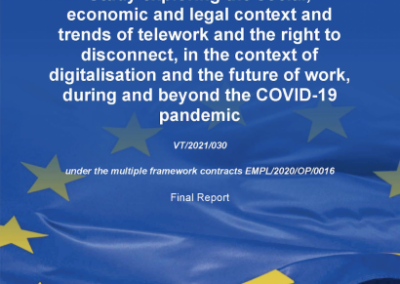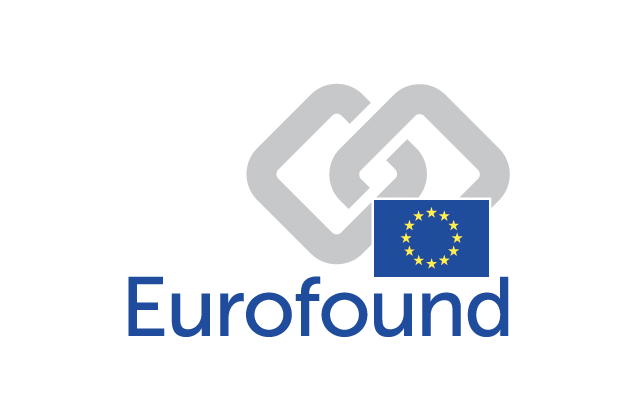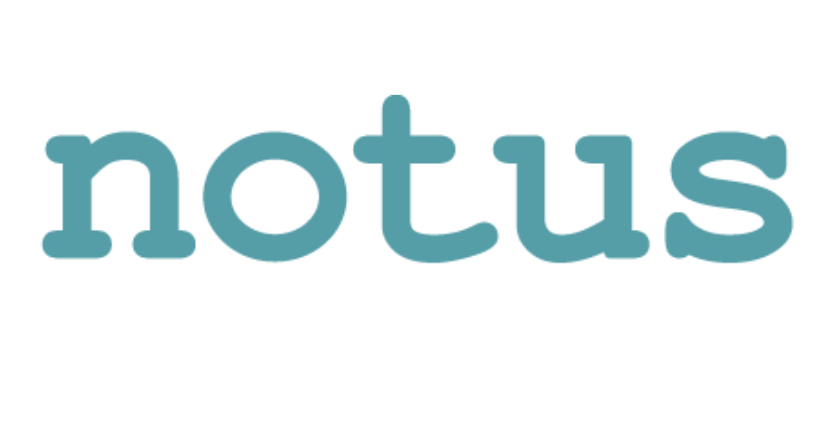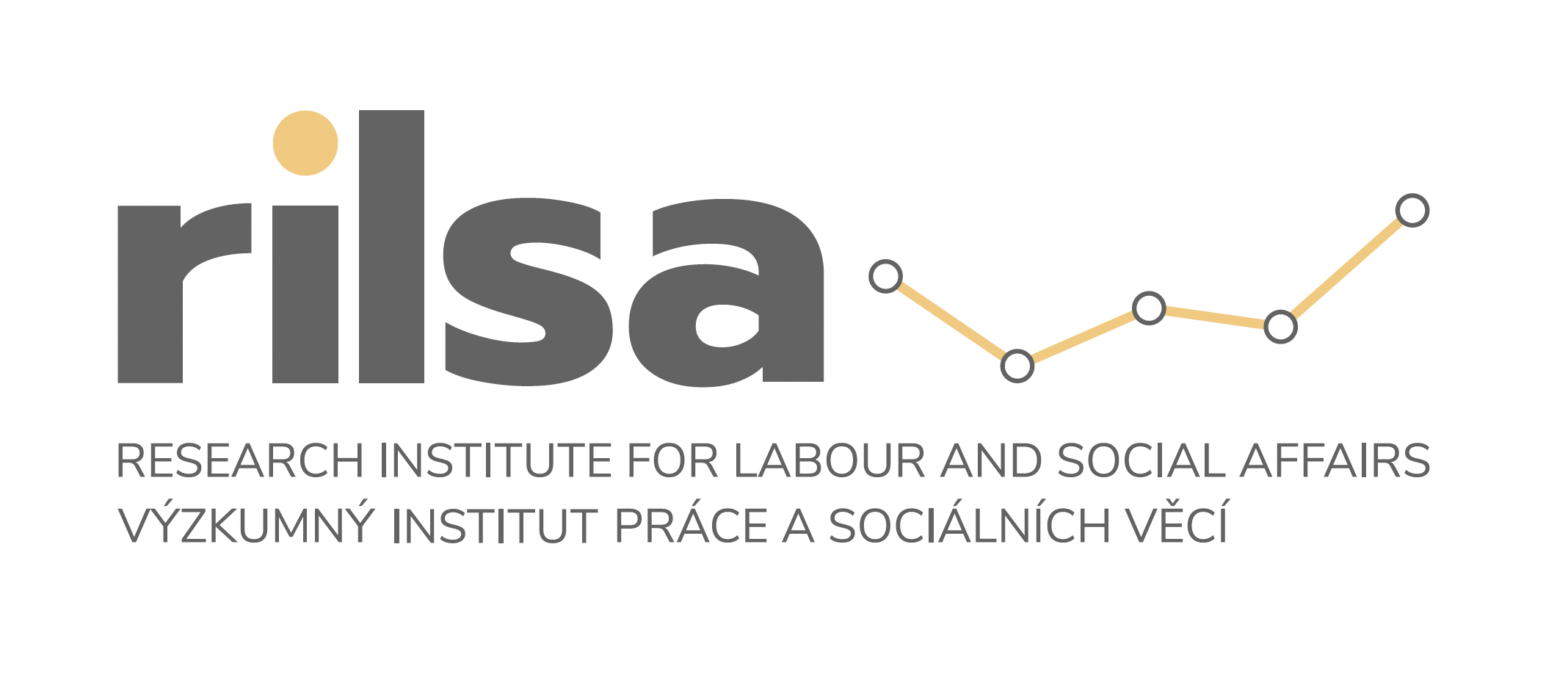IR Research
Informing decision-makers
As Eurofound’s National correspondent, IR Share provides information on working conditions, industrial relations and the labour market to support the EU institutions and bodies, Member States and social partners in shaping social Europe, as well as promoting social dialogue on the basis of comparative information and research.
Our recent researches and activities






As national correspondents, our contributions support Eurofound’s research by collecting, analysing and reporting on specific developments (policies, practices and regulations) in the EU Member States and by supporting Eurofound’s outreach activities at national level.
Our Partners

Ultra Laborans
Ultra Laborans is a multi-disciplinary team that provides support for organisations and territories in the transformation of work.

Visionary Analytics
Visionary Analytics is a research-based advisory company providing applied research, evaluation and other consultancy services for the European Union institutions, international organisations and national governments.

Notus
Notus‘ work includes providing technical support to public and private entities with the design, management and evaluation of their policies and programmes, as well as organising seminars and workshops.

FORBA
Research at the FORBA institute specialises in issues of work and employment. Within this clearly defined profile, it covers a broad range of topics and activities. FORBA’s research areas deal with the micro level of the individual, social interaction and working conditions and the meso level of the organisation or network as well as with the macro level of the labour market and global economy. Research practice at the institute relies on a series of qualitative and quantitative methods. Special features of research at FORBA include its multidisciplinary character and openness to many forms of cooperation.

RILSA
The main RILSA objective of the scientific research activities is to contribute to the understanding and forecasting of the socio-economic development of society and to prepare documents and recommendations for state administration authorities, especially the Ministry of Labour and Social Affairs, on the basis of both applied and basic research. The scientific research activities of the RILSA are mainly focused on labour and social areas. Comparisons of international employment and social policy indicators are an integral part of the research.
FAQ
What kind of research does IR Share conduct? What are the main themes of IR Share’s research?
IR Share conducts qualitative research focused on industrial relations and social dialogue in France and across Europe. Our studies aim to inform decision-making for employers, trade unions, policymakers, and researchers. As part of the Eurofound Network of Correspondents, IR Share contributes to European-wide analyses on themes such as: working conditions and sustainable work, labour markets, social inclusion, climate change, demographic shifts, and their impact on society.
Who commissions IR Share’s studies?
IR Share’s studies are commissioned by a wide range of clients, including international organisations, think tanks, public institutions, social partners, and private companies.
Our partners value our independent and evidence-based approach to research, as well as our well-developped network both in France and throughout Europe.
Can organisations request custom research? How can my organisation partner with IR Share for research?
Yes.
IR Share welcomes partnerships with organisations seeking custom studies or specialised analysis. If your organisation would like to commission or partner on a project, please contact us to discuss your needs. We will work with you to co-design a research plan that meets your objectives while maintaining our standards of independence, methodological rigour, and transparency.
How can I stay informed about new research findings?
You can stay up to date with IR Share’s latest research and insights through our Research Highlights section on the website. You can also subscribe to our newsletter or follow social media to keep our community informed of new findings and publications.
What is IR Share's stance when it comes to AI and independence?
IR Share is committed to independent, balanced, and transparent research. We use AI tools responsibly to enhance data analysis and research efficiency, while ensuring that all interpretations and conclusions are guided by human expertise, critical review, and ethical standards.
Other IR Share Services
Sharing knowledge and information to deepen our collective understanding and develop new solutions to address the impacts of digitalisation, climate change and environmental protection.
IR Doc
Open access library
IR Doc is a multilingual resource centre providing documentation on labour law and industrial relations at European Union and Member State level, including collective agreements concluded by the social partners at European, sectoral and transnational company level.
IR Training
Strengthening social dialogue
Members of the IR Share team are regularly called upon to devise training courses. We deliver these either directly or working together with partners, to ensure that the training is tailored to the exact needs expressed.
IR Notes
Building a social Europe together
The IR Notes newsletter gives everyone in Europe access to an independent, reliable and impartial source of information on topics involving industrial relations
IR Club
Club CE européens – EWCs Club
Since 2011, the European Works Councils Club has sought to co-construct the foundations of a European social dialogue that can meet the social and environmental challenges faced by transnational companies..
Get in Touch
Let’s talk about your ideas and suggestions.
Drop us a line via the form below and we’ll get back to you.
Follow us on social media
